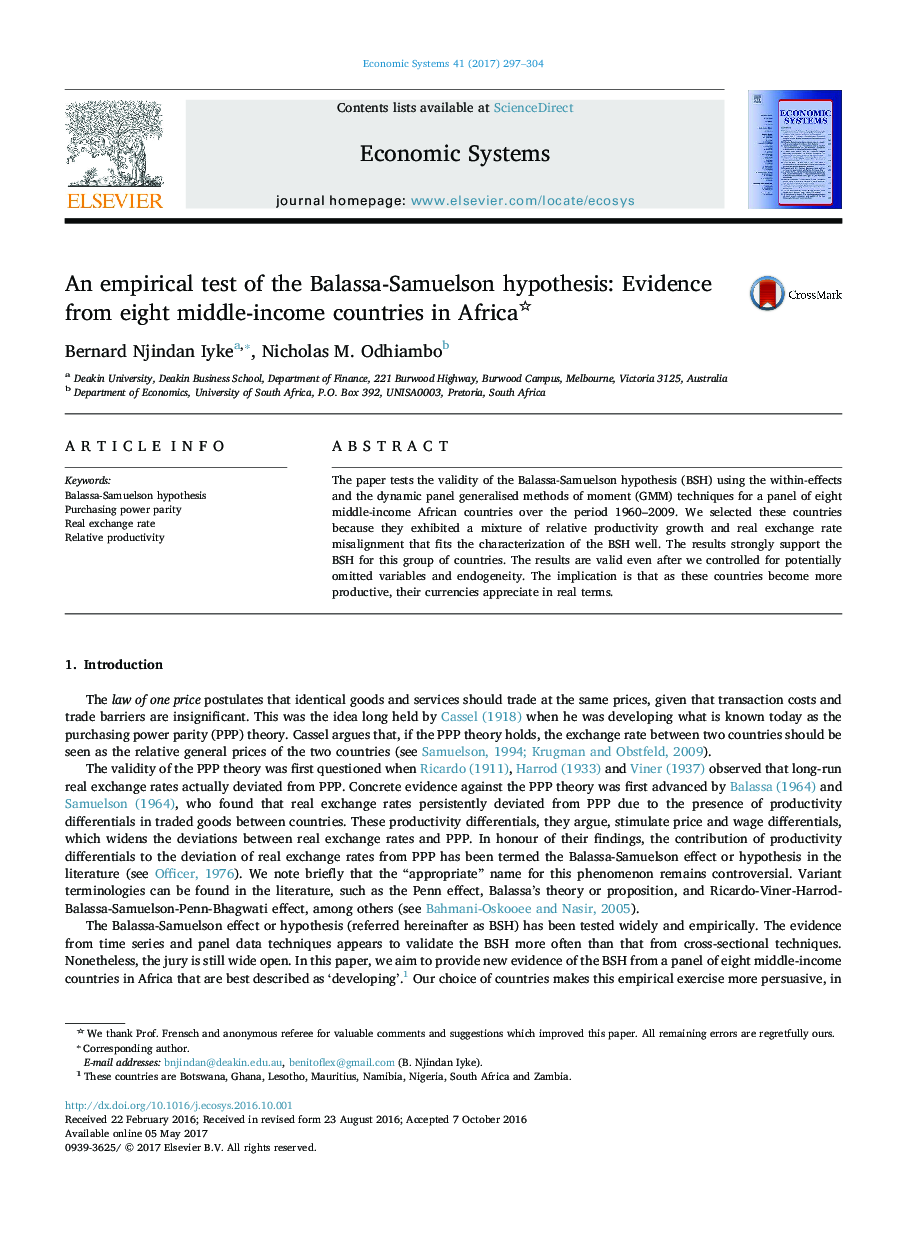| کد مقاله | کد نشریه | سال انتشار | مقاله انگلیسی | نسخه تمام متن |
|---|---|---|---|---|
| 5056212 | 1371617 | 2017 | 8 صفحه PDF | دانلود رایگان |

- We test the validity of the Balassa-Samuelson hypothesis (BSH).
- Our sample is based on a panel of eight middle-income African countries for the period 1960-2009.
- The countries exhibit productivity growth and exchange rate misalignment befitting the BSH.
- We use the within-effects and GMM estimators for the empirical estimations and find the BSH to hold.
- Therefore, as these countries become more productive, their currencies appreciate in real terms.
The paper tests the validity of the Balassa-Samuelson hypothesis (BSH) using the within-effects and the dynamic panel generalised methods of moment (GMM) techniques for a panel of eight middle-income African countries over the period 1960-2009. We selected these countries because they exhibited a mixture of relative productivity growth and real exchange rate misalignment that fits the characterization of the BSH well. The results strongly support the BSH for this group of countries. The results are valid even after we controlled for potentially omitted variables and endogeneity. The implication is that as these countries become more productive, their currencies appreciate in real terms.
Journal: Economic Systems - Volume 41, Issue 2, June 2017, Pages 297-304